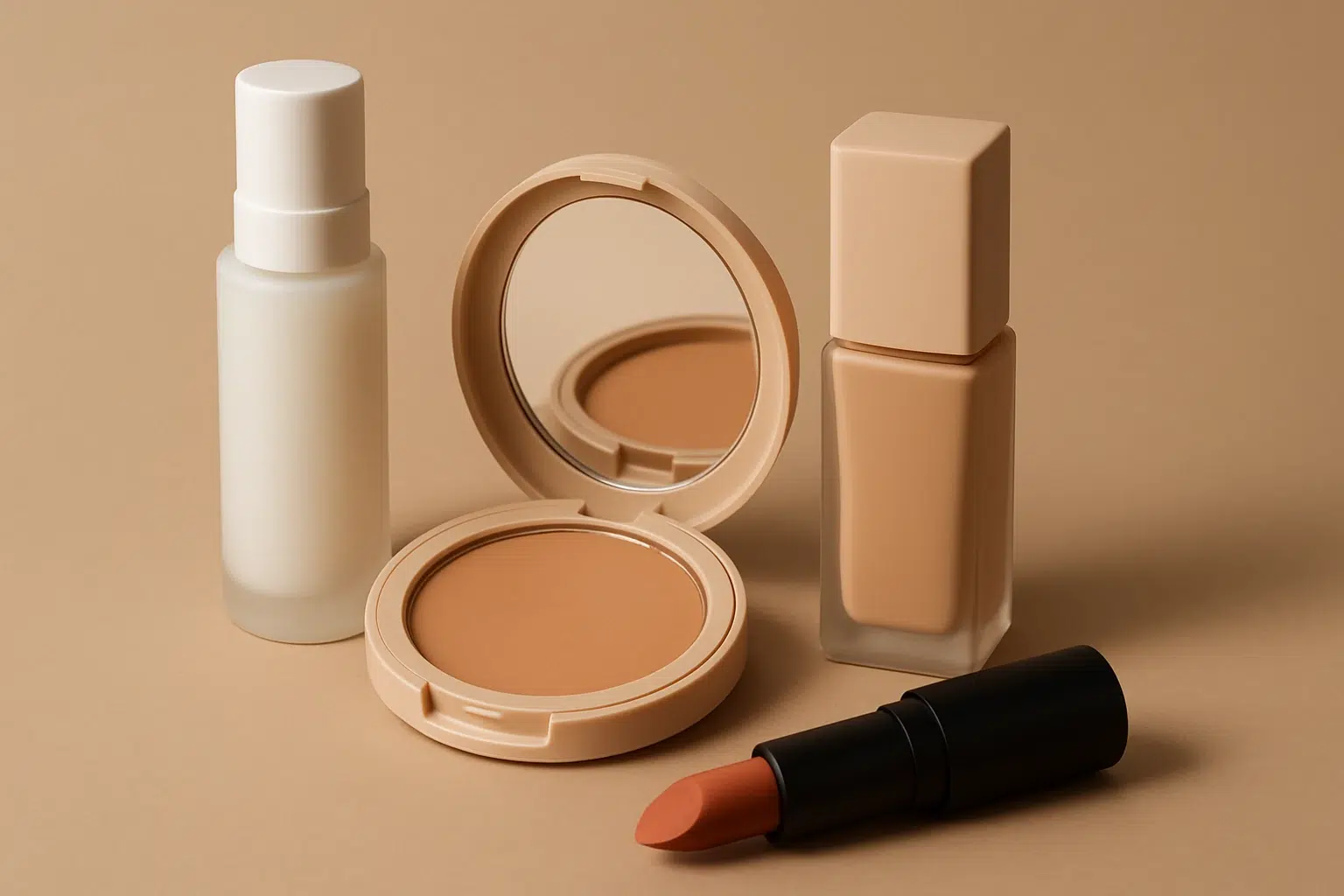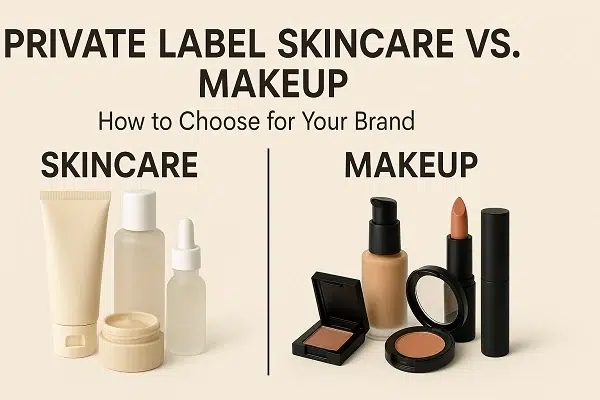The cosmetics industry is a thriving market with a constant demand for quality products. Over the years, we have seen the emergence of private-label cosmetics and how they have redefined quality standards.
Table of Contents
A Private label is an arrangement where a manufacturer produces products that you, in turn, brand and market as your own.
You can have your own beauty line by contracting a private-label cosmetics manufacturer.
With the ever-changing expectations from consumers on quality, you must be careful not to offend them.
They expect safe, reliable, and effective products for their beauty needs. Cosmetics products must pass regulatory requirements and should be manufactured using best practices.
This post will teach you how private-label cosmetics are redefining quality standards, their impact on the industry, and how consumers perceive them.
The Rise of Private Label Cosmetics
Private-label cosmetics have witnessed a massive surge in popularity in recent years. Consumers and retailers have become aware of their advantages.
According to a recent survey by Deloitte, 65% of retail consumers are willing to trade brands when prices are high.
What are the advantages of private-label cosmetics to consumers?
Consumers benefit by getting beauty products at lower prices than established brands. Furthermore, the quality of the skincare products is as good if not better than those of selected brands.
Private-label cosmetics are also more accessible in the market and are available in shops, supermarkets, pharmacies, and online platforms. They also come in different packaging options, which might not be the case with established brands.
What about the retailers?
By using private label services, retailers get the advantage of increased profit margins compared to branded products. The manufacturing company makes beauty products from high-quality formulas that are organic and cruelty-free.
The retailer brands them with their logo, creating a unique product identity different from competitors.
They also get control over product development by working closely with the manufacturers to create products to their desired specifications.
A Private label cosmetics manufacturer usually has a lower minimum order quantity, and you can also control the production time to suit your needs.
Retailers also enjoy flexibility and adaptability in the range of color cosmetics they can stock. They can quickly introduce new products and even discontinue performing ones.
Redefining Quality Standards in Private Label Cosmetics
Private-label cosmetics have raised the bar for quality standards in the industry. Here is how private-label cosmetics are redefining quality standards.
Emphasis on Customization and Product Development
Private-label brands strongly emphasize product development and customization to meet specific consumer needs. This is unlike established brands which often provide standardized product offerings.
Private brands also have the flexibility to create products from high-quality formula, branding, and packaging. Factors like age group and skin type are considered when producing private-label makeup.
They also consider specific concerns like being vegan cruelty-free.
Such customization allows a business to cater to a wide range of consumer demands ensuring that cosmetic products align with their needs.
Stringent Quality Control Processes and Standards
Private labeling companies understand the importance of maintaining high-quality standards to boost customer loyalty and trust.
Therefore, they follow stringent quality control standards and processes throughout the manufacture of color cosmetics.
Companies must therefore partner with manufacturers known to have good manufacturing practices.
This means conducting thorough tests on raw materials and finished cosmetic products to ensure they comply with relevant standards.
Prioritization of quality control indicates the commitment by private label brands to provide safe and reliable products to consumers.
Adoption of Eco-Friendly and Sustainable Practices
There’s a huge demand for eco-friendly products and sustainable practices in a bid to protect the planet. So, companies are reducing their carbon footprint by adopting more sustainable practices.
These include producing vegan, cruelty-free products and using eco-friendly, recyclable and biodegradable packaging, recyclable and biodegradable packaging. Companies are also switching to renewable energy to minimize their carbon footprint.
This is a great strategy to appeal to customers who prioritize sustainability.
Impact of Private Label Services on the Cosmetics Industry
These are some of the ways private-label makeup has influenced the cosmetics industry.
Competitive Landscape and Increased Competition From Private Label Brands
The emergence of private-label products has dramatically impacted the competitive landscape of the cosmetics industry.
Since gaining traction, they have posed increased competition to established cosmetic brands.
With the ability to manufacture high-quality products at competitive prices, private-label cosmetics have captured a growing market share.
In effect, it has prompted the big brands to reassess their strategies to maintain their lead.
Influence on Established Cosmetic Brands and Their Response
Established brands have had to reevaluate their approach in response to the changing marketing dynamics.
They’ve found themselves under pressure to compete with private-label cosmetics companies. They compete in price, quality, customization, and professional touch.
Some established brands have, therefore, come up with their private label brand or collaborate with private label manufacturers.
This way, they stay relevant and regain their market share in the face of increased competition.
A Shift in Consumer Perception and Expectations of Quality
Consumer expectations and perceptions have considerably shifted since the emergence of private-label products.
Private label companies have therefore done tons of research to develop top-quality makeup products and even provide custom and luxury packaging.
Consumers have increasingly become receptive to private-label cosmetics as they offer comparable quality at better prices.
Challenges of Private Label Services
Here are some of the challenges private label brands are facing in the market today.
Maintenance of Quality Standards
While they have made significant strides in redefining quality standards, they still have challenges maintaining them.
These include getting reliable manufacturers and suppliers and managing quality control processes. They also face challenges ensuring compliance with regulatory standards.
Private label companies must, therefore, have strong partnerships with manufacturers by investing in robust quality control systems.
Industry Trends and Innovations
Among the industry trends and innovations shaping the future of private-label products includes the need for.
- Clean and sustainable skincare products: There’s a massive appetite for clean and sustainable beauty products today. Therefore, they must incorporate eco-friendly practices in their formulas.
- Digital transformation: With e-commerce and online sales taking center stage, the market has undergone a digital transformation. Private brands must, therefore, embrace e-commerce and digital marketing capabilities to stay competitive.
- Innovative technology and formulations: Private brands can leverage technology and innovative formulations to create effective and unique products. This includes harnessing scientific advancements, using advanced ingredients, and utilizing emerging beauty technologies.
- Diversity and inclusivity: People increasingly seek makeup products catering to various skin tones, gender identities, and ethnicities. They can do this by creating an extensive library of shades and using various marketing campaigns to reach a wider consumer base.
Predictions for Future Growth
Despite the challenges, the future of private-label makeup looks promising, and our predictions include.
Market Expansion
Private-label cosmetics will continue to gain market share. This will be driven by increased consumer acceptance, improved quality standards, and competitive pricing.
Private-label makeup companies are also expected to increase their product portfolios to penetrate new markets.
Partnerships and Collaborations
Due to the increased competition for market share, private labels are expected to collaborate with established brands in the future.
We expect partnerships with big retailers and influencers to enhance credibility, visibility, and distribution networks.
The collaborations are expected to create mutually beneficial opportunities for established and private-label brands.
Innovation and Differentiation
As expected, private-label companies will continue to focus on innovation and research to stand out in a highly competitive market.
This calls for developing special formulas for their skincare products and using unique packaging designs.
They will also use unique marketing strategies that resonate with their target market. Such include adopting e-commerce and using eco-friendly processes.
Conclusion
Private labeling is here to stay. It’s expected to evolve into mutually beneficial relationships with established brands. Their increased focus on quality and innovation has brought significant changes in the market, redefining industry standards. So, don’t be shy to start selling your own line of cosmetic products, as the future looks bright and promising with increased consumer acceptance.







